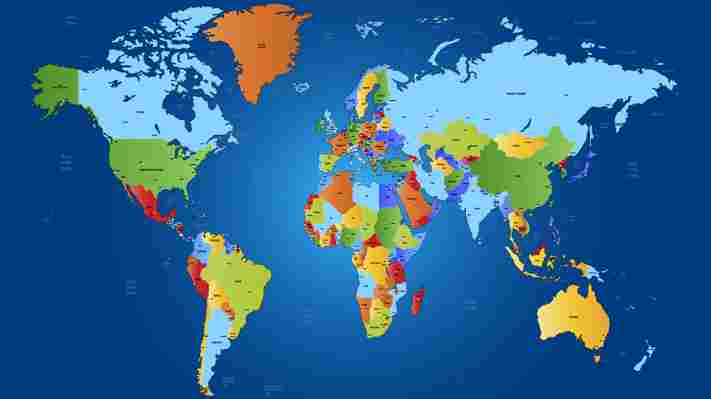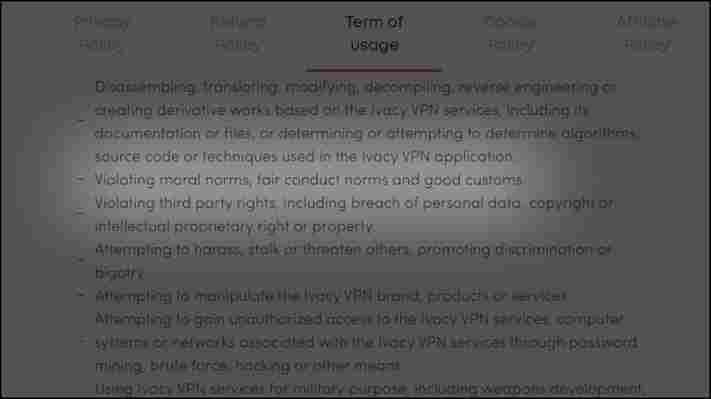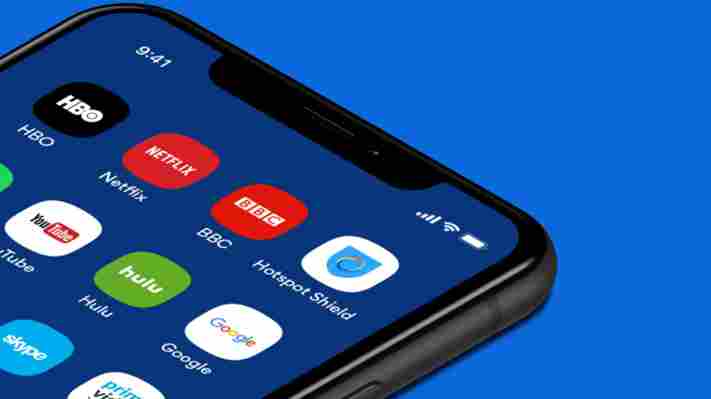Intel has announced it will spend $20 billion on a new bleeding-edge chip manufacturing campus in Ohio, USA.
The 1,000-acre “mega-site” will house up to eight separate fabs and create roughly 3,000 permanent jobs, which would make it one of the largest chip manufacturing facilities in the world.
Intel says planning for the first two factories will begin with immediate effect, and expects ground to be broken later this year. Assuming there are no unexpected delays, chip production should begin in 2025.
Onshoring chip production
As the US looks to onshore larger portions of the semiconductor supply chain amid rising tensions with China (which claims ownership of Taiwan, home to market leader TSMC), the new Intel mega-facility will be of significant strategic importance.
And while the factories won’t go online for a number of years yet, the additional capacity created by the new campus will also help address the ever-rising demand for chips. According to figures from Gartner, the semiconductor industry was worth more than $500 billion in 2021, up 25% on the previous year.
“Today’s investment marks another significant way Intel is leading the effort to restore US semiconductor manufacturing leadership. Intel’s actions will help build a more resilient supply chain and ensure reliable access to advanced semiconductors for years to come,” said Pat Gelsinger, Intel CEO.
“These factories will create a new epicenter for advanced chipmaking in the US that will bolster Intel’s domestic lab-to-fab pipeline and strengthen Ohio’s leadership in research and high tech.”
Intel has struggled in recent years to keep up with rivals TSMC and Samsung, suffering repeated delays to the launch of its 7nm manufacturing process and other setbacks. Meanwhile, TSMC is taking orders for advanced chips manufactured using 3nm technology, which will go into the next generation of laptops , computers , smartphones and more.

However, Intel says the new factories will help close the gap on its Asian competitors, by laying the foundations for the launch of its own new cutting-edge process nodes. The Ohio facility will also support demand among third-parties for Intel’s foundry services, as part of the firm’s IDM 2.0 plans .
“Intel is opening its factory doors wide to serve the needs of foundry customers around the globe, many of whom are looking for more geographical balance in the semiconductor supply chain,” added Dr. Randhir Thakur, who heads up Intel Foundry Services.
“The Ohio factories are designed for the ‘Angstrom era’, with support for Intel’s most advanced process technologies, including Intel 18A.”
Elden Ring director says It Takes Two was the last game to stick with him
Elden Ring director Hidetaka Miyazaki has said the last game to leave an impression on him was co-operative platformer It Takes Two .
Speaking about Elden Ring on the official PlayStation blog , Miyazaki was asked if there were any games in recent memory that particularly grabbed his attention. The director said that while he hasn’t had much time to play video games lately, Hazelight’s cartoonish platformer was a particular highlight.
“One game that stuck with me recently was It Takes Two,” Miyazaki said.
“I managed to play that one from start to finish with a friend online in three days across three sittings, and it was a great time. That game really left an impression on me, so yes, that’s one that I’ve managed to finish, at least!”
He went on to praise the game for its gameplay variety and narrative, which he said resonated with him as a father.
“It didn’t let up throughout, and it never let me get bored,” he said. “The art and gameplay are different in each stage, and the game encourages you to cooperate across its entirety yet still maintains that artistic element.
“It’s continually fun to play and felt extremely fresh to me right up until the end, which was impressive to me as a fellow creator.”
He also said that he continues to enjoy ‘analog’ and tabletop games, singling out murder mystery-type titles in particular.
Analysis: a man of many tastes

Fans of any creator like to know their influences. It often says a lot about their creations, direction, or potential interests. While Miyazaki undoubtedly won’t be releasing a colorful co-op platformer any time soon, his comments do demonstrate the director’s eclectic taste.
Punishing RPGs peppered with gothic horror and twisted fantasy imagery, the Souls games are worlds away from it Takes Two in both gameplay and theme. But it’s understandable why Miyazaki would like the co-op platformer. It was released to positive reviews across the board, with critics particularly praising its ability to introduce new mechanics in each new world, themed to that area.
Similarly, many were pleasantly surprised by the game’s narrative depth, which follows a couple rekindling their broken marriage through the tried and tested method of body-swapping with two dolls and exploring a magical-realist world.
Miyazaki’s comment about never feeling bored is particularly pertinent, however, as prior to the game’s release, studio director Josef Fares promised to give $1,000 to anyone who honestly claimed to get bored with the game.
6 things to look out for in your VPN's terms and conditions
It's almost automatic: you're signing up with a VPN , the 'Check to confirm you agree with the Terms and Conditions' message pops up and, within a nano-second, you've clicked the box. Because getting on with your day is far more appealing than scrolling through 5,000 words of confusing legal jargon.
You're not alone. We regularly do it, too. But it could be a mistake. A VPN's terms and conditions contain all kinds of handy information on who can use the service, refund rules, payment and billing terms, important details that you might not find anywhere else.
You don't have to read every word of the terms, either. Look out for the key items we'll explain in a moment, and you can skim over everything else. Just 60 seconds scrolling down the page and browsing a few words could help you avoid the worst VPNs, and identify the very best.
Then it's your chance to move on to the VPN privacy policy ...
1. What are you buying exactly?
The first reason you really, really, really need to scan your VPN's terms page, is it's probably the only page on the website which fully explains what you're getting for your money.
We're talking about the precise details. Is this a personal-use service only, or can you use it for business? How many devices can you connect simultaneously? Do they have to be all yours, or can you share logins with family members? Are there any odd device restrictions? ( Astrill VPN says you can only install the service on a single router, for instance.)
This might not matter very much if you're just after an iPhone VPN , say, and you'll never use it anywhere else. But if your needs are a little complicated, check what you're getting before you buy.

2. Where is the provider based?
Some VPN providers give you no idea who's behind them, or where they're based. Are they in the US, China, Russia...? The main site may offer no clues at all.
The TS&Cs are often more helpful. Look first for any information on a company behind the provider. For example, NordVPN's terms mention: "nordvpn s.a., a company incorporated in Panama."
As a provider's terms are designed to hold up in law, many providers also tell you which country's law they're following. ExpressVPN's 'Choice of Law' section is typical: "This Agreement shall be governed by and construed in accordance with the laws of the British Virgin Islands."
3. What's the refund policy?
Some services boast about their generous refund policy and VPN free trial , while others don't mention it all. Whatever your provider says on the main website, it pays to check the Ts&Cs to get the real details.
What you're looking for is a clear explanation of the rules. ExpressVPN's policy is a great example, telling you everything you need to know in a single sentence: "You may cancel your account for any reason within 30 days of your initial purchase and you will receive a full refund of the amount you paid."
TunnelBear's offering isn't such good news: "All amounts paid are non-refundable." But it's very clear, which is what we're after. Open and honest.
Beware of policies where it's left up to the provider whether you get a refund, or not. So look for phrases like 'at our sole discretion'. And be aware of specific restrictions, such as saying you won't get a refund if you've connected more than a set number of times, or used more than a certain amount of traffic.
And if you read the refund policy and can't tell whether it's fair, here's a hint: it's probably not. As you can see above, the best providers tell you everything you need in very few words. If your VPN's policy is so complicated you can't understand it immediately, that's a very bad sign all by itself.

4. Are there any unusual restrictions on use?
Scroll quickly down any VPN terms page and stop when you see a bullet point list. Chances are it's a list of 'prohibited services' - everything the provider says you really mustn’t do while connected to the service.
Most of these are just as you'd expect. 'Don't send spam', 'don't hack other systems', 'don't distribute child pornography', or sometimes a catch-all 'don't use the Service for anything other than lawful purposes'. Works for us.
But others catch activities you might think were legitimate. NordVPN uses automated tools to identify web scraping and might 'limit your access' if it's suspicious, for instance. KeepSolid VPN prevents you from using the service in a way 'where it could be used by multiple devices at the same time'; so no turning your laptop into a wireless hotspot, then. And Ivacy says you're banned from 'violating moral norms, fair conduct norms and good customs', which could catch all kinds of websites and online activities.
Sure, many of these rules have probably ever been enforced. As almost all VPNs say they don't monitor what you're doing online, complaining that a user 'violated moral norms' would destroy a provider's reputation, perhaps forever. Still, if you're planning something more specific, such as using a VPN for web scraping, it's useful to check out a provider's policy before you buy.
5. What are the renewal terms?
Sign up for most VPNs and your plan will be set to renew automatically. That shouldn't be a surprise - it's usually made very clear during the purchase process - but it's still worth looking at small print, to understand the precise details.
Look for exactly when you're billed again. Ideally the terms will explain this happens at the end of your subscription, with a phrase like 'at the completion of the billing term'. But we've seen a few companies say they renew a day or two earlier, throwing in some excuse about how it avoids any break in service - though really it just catches out people who think they can leave cancelling at the very last minute. Either way, it's important you know when know your money will be taken.
Check how you're able to cancel, too. Normally you can just choose a box in your web account dashboard. But look out for providers who make this more difficult, ask you to fill in a special form or send an email. You want to know you can cancel immediately, not wait who-knows-how-long for the provider to do that for you.
If you've had a refund from this provider before, look to see if you're able to get one again. Hidee only refunds any individual once, ever; NordVPN allows two; Private Internet Access has no set limit, although there's has to be at least 90 days since your last refund request.

6. What else do you really need to know?
Our last tip is just to scan down a VPN's terms and conditions, and stop to take a look at anything which catches your eye. We've found all kinds of interesting snippets in our reviews.
There might be important privacy details, such as the provider's no-logs policy, for instance. They're usually in the official Privacy Policy, but some VPNs have more details in the terms, too.
If you see a term similar to 'fair usage policy', stop to check the details. In theory this should explain when the provider will say you're using the service 'too much' - if the VPN advertises it supports unlimited connections, for instance, what does that really mean? In practice, fair usage policies are usually so vague that they don't help at all, but it's still a smart idea to check.
Finally, don't assume service terms only matter for paid VPNs. They can be even more important for free VPNs , because there's a good chance they'll be taking steps to finance the service.
Hotspot Shield's privacy policy has a relatively innocent example, saying if you're using the free service, it 'may deliver third party Advertisements to overlay a page or as an interstitial' (something displayed before or after your requested content). Is your preferred free service doing anything more? Maybe it's time to check.